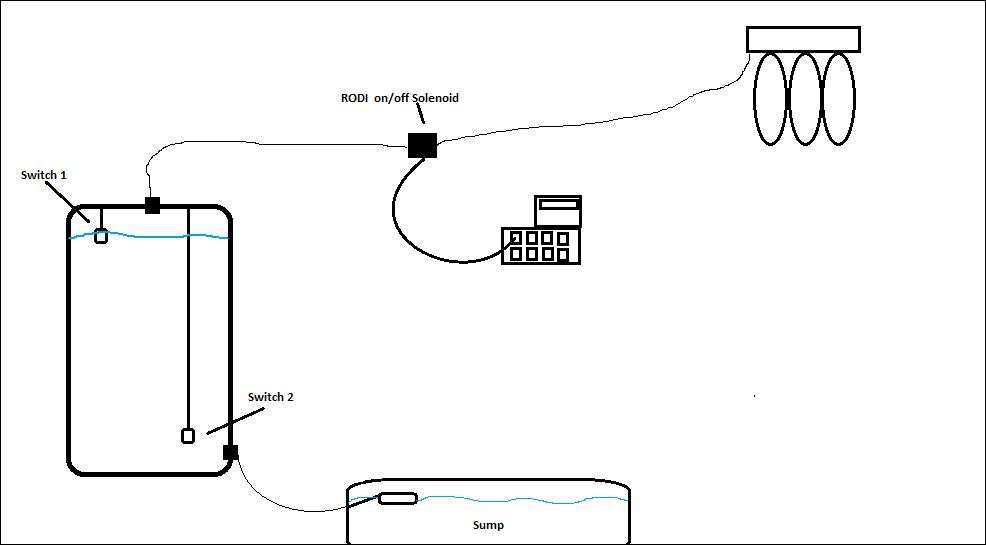LetsGetTanked
New member
Here's my issue:
I have an AquaController III and I'm trying to automate my ATO, which gravity feeds my sump. In my storage container are two float switches (see diagram). When the RO water goes below Switch2, I want it to turn on the solenoid, refilling the container. I want it to continue filling until Switch 1 is triggered, which will shutoff the Solenoid. The problem I've run into is that it appears a switch can't do only one process. If the switch is being used, it seems to have to do both the ON and OFF functions. Unless my code is wrong, it won't do only one function or the other.
Here's my programming that doesn't work. Any suggestions on how to program it?
If Switch2 CLOSED Then SOL = ON (when water level drops below this switch, it should turn on the solenoid refilling the container)
If Switch1 OPEN Then SOL = OFF
The problem is that Switch2 is controlling both ON and OFF functions. When the water drops, it will turn on the SOL. However, once the float raises again, the circuit becomes open and shuts off the solenoid. I want this to become null and the water to completely submerge Switch2 until it reaches Switch1. Make sense?

I have an AquaController III and I'm trying to automate my ATO, which gravity feeds my sump. In my storage container are two float switches (see diagram). When the RO water goes below Switch2, I want it to turn on the solenoid, refilling the container. I want it to continue filling until Switch 1 is triggered, which will shutoff the Solenoid. The problem I've run into is that it appears a switch can't do only one process. If the switch is being used, it seems to have to do both the ON and OFF functions. Unless my code is wrong, it won't do only one function or the other.
Here's my programming that doesn't work. Any suggestions on how to program it?
If Switch2 CLOSED Then SOL = ON (when water level drops below this switch, it should turn on the solenoid refilling the container)
If Switch1 OPEN Then SOL = OFF
The problem is that Switch2 is controlling both ON and OFF functions. When the water drops, it will turn on the SOL. However, once the float raises again, the circuit becomes open and shuts off the solenoid. I want this to become null and the water to completely submerge Switch2 until it reaches Switch1. Make sense?

